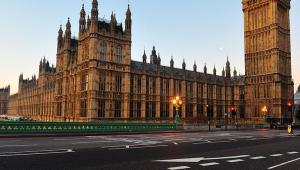The crisis that hit the children’s charity Kids Company has provoked a lot of feverish discussion. It was a high-profile case with delicious ingredients: a flamboyant leader, a prominent BBC figure as chair and very visible fundraising from celebrities such as Coldplay. Of course, charities go under all the time for various reasons. Recently, the British Association for Adoption and Fostering, and BeatBullying have also succumbed.
Much of this is for the charity sector to sort out. Were the management and governance good enough? Did donors – including the government – understand the model that, for good or bad, Kids Company was following in terms of delivery and funding? Was the charity able to produce enough convincing evidence on its impact and did those giving donations care enough about that?
These are issues that NPC has championed for 15 years, not always welcome either by donors or charities. But the whole episode raises more general issues about the sector's interaction with government. Some people feel that charity should be all about willing workers and volunteers raising money from willing donors, who are free to address social problems and other causes as they wish, with no need to worry about what government might think.
This is neat, but far too simplistic. Charities are inevitably mixed up with government. Even where they are not taking money, they are influenced by policies that government makes, want to influence them in turn, and often deal with vulnerable people who are tied up with all sorts of aspects of the state. The idea that there is a rigid separation, that there can be and that it would be good if there were, is surely not convincing.
There are particular issues where charities are delivering services that in many ways the state ought to be providing. Kids Company had grants from government but there are many other charities funded by government through contracts or grants, with strict service level agreements attached.
Contracts – especially as they get bigger as the public sector seeks economies of scale – are difficult for charities to win and tricky to deliver, especially for smaller ones that often make such a crucial difference to a local community. Given government claims to want a mixed economy of provision, this is worrying.
There are also issues in charities delivering public services, or what once were public services or ought to be, not least that from time to time they will fail. The absence of foolproof regimes to deal with ‘failure’ have always been one Achilles heel in a more market-oriented public service delivery model. If the public feel let down by a charitable social care or youth service provider going under, then the state will have to do something.
Equally, some charities seem not to be as covered by regulation as other providers in the public sector. Many have pointed out that Ofsted did not inspect Kids Company. While this is not true in all sectors, it seems strange if transparency and regulation does not affect charities when they deliver public services. None of this is to condemn the charity sector. Practices at least as troublesome can be found in the outsourcing private sector and in the public sector itself. But as austerity and fashion continue to redraw the boundaries between state and civil society, we are bound to end up exploring more of these issues.




















